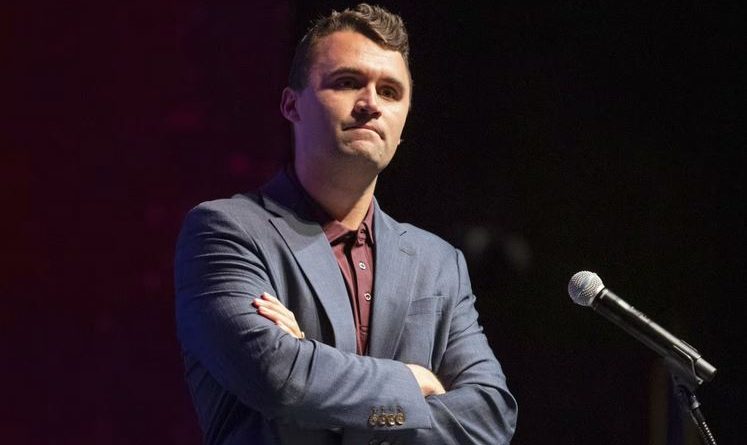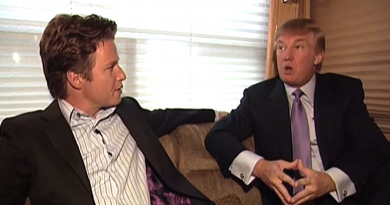I understand feeling the need for political violence
I need to start this by saying something unequivocally, right at the top. Before anyone even thinks of jumping to conclusions or painting me with a brush of malice: I do not, and have never, supported violence against anyone, regardless of their views. The act of murder, the deliberate taking of a human life, is a tragedy, full stop.
Now that we’ve cleared that vital moral ground, let me tell you about Charlie Kirk. Or, more accurately, let me tell you about my introduction to Charlie Kirk.
Until this past Wednesday, when the news alerts started buzzing about his assassination, I’d never heard the man’s name. Not once. I clicked on the notification with a shrug, thinking, “Who is this guy?” Little did I know, this seemingly obscure event would become a prism through which I’d view some of the most uncomfortable truths about our current society.
The immediate aftermath was, predictably, a cacophony. Every news channel, every social media feed, became an echo chamber of commentary. Instagram, that erstwhile haven of perfectly curated vacation photos and adorable puppy updates, transformed once again into a battleground of text posts – rants, monologues, political broadsides. It’s a phenomenon I’ve observed too often lately, where any hint of civil unrest or significant political event immediately turns every platform into a shouting match. Can we please, please reclaim just one corner of the internet for the simple, the joyful, the utterly un-serious? Bring back the cute puppy pics, I beg you. Let’s have one space for collective sighs of contentment, not collective outrage.
As I delved deeper into the rabbit hole of news articles and video clips following Kirk’s death, a picture began to form. I watched him – or rather, listened to him – trash women, gays, trans people, black individuals, really anyone who didn’t fit neatly into the mold of a straight white man.
His rhetoric wasn’t just critical; it was dismissive, often contemptuous, and at times, outright venomous. And as I processed the sheer breadth and depth of his vitriol, a part of me, a very uncomfortable and unsettling part, couldn’t help but think: “Yeah, I can see how people would want this guy dead.”
This isn’t an endorsement. It’s an acknowledgement of a raw, primal human reaction that, while often suppressed or condemned, is undeniably present in our collective psyche. The thought, fleeting and disturbing as it was, wasn’t born of a desire for violence, but from an almost academic understanding of the profound fear and resentment such relentless, dehumanizing rhetoric can cultivate. It’s an ugly truth, but it’s a truth we must confront if we are to understand the landscape we inhabit.
Societal celebration of death, particularly the death of a despised figure, is hardly a new phenomenon confined to the dark corners of the internet. Think about one of the most significant moments in recent American history: the capturing and killing of Osama bin Laden. Across the U.S., people literally danced in the streets, cheering into the night with a profound sense of relief and vindication. There wasn’t a single dissenting voice lamenting the loss of an “opinion leader” there. Bin Laden was feared; he was despised; and his demise brought a wave of exultation.
Or let’s venture into the realm of fiction, where our collective narratives often reveal our deepest truths. Consider the timeless classic, The Wizard of Oz. When Dorothy’s house unceremoniously crushes the Wicked Witch of the East, what’s the reaction? An entire town of Munchkins bursts into song and dance. Not one little Munchkin steps forward to defend the witch, to say, “Wait a minute, she makes a good point about property rights; let’s hear her out.” No. She was a figure of fear, an oppressor, and her flattening (and flat-lining) brought unadulterated joy.
Flipping back to present-day America, it’s not much of a stretch to connect these dots. For the groups that Kirk relentlessly targeted – women, the LGBT community, black Americans, and others – his words were not just opinions; they were often perceived as direct attacks, as fuel for discrimination, and, in some cases, as incitement to violence.
It is understandable, if not condonable, how those who felt perpetually under siege by his influence might harbor a similar wish for his silencing, for his removal from the public stage, even if that removal came in the most tragic and violent way.
The American discourse is quick to justify its pervasive gun culture under the banner of “self-defense.” We’re told that the right to bear arms is about protecting oneself when one’s life is immediately threatened. But what constitutes an “imminent threat” in our modern, hyper-connected world?
While Charlie Kirk himself might not have been physically present, directly brandishing a weapon, he was, by all accounts, a profoundly influential mouthpiece for a radical faction. He amplified narratives, legitimized prejudices, and galvanized a base that, for many, did represent an immediate, existential threat to their safety and peace of mind.
I understand how someone from a marginalized community could legitimately say, “I feel unsafe with this man in my country.” His words, broadcast to millions, created an environment where hate and intolerance were normalized, where the very identity of certain groups was constantly debated, ridiculed and demonized.
Was Kirk an “imminent threat” in the traditional sense? Perhaps not in the immediate physical proximity but he was certainly a powerful catalyst, a puppet master of rhetoric that, for many, translated into real-world fear, discrimination and violence.
Consider the ongoing “trans debate,” which often rears its head after a mass shooting or, as in this case, a targeted assassination. One side, often Kirk’s side, argues that the issue is about “drugs and fucked-up things trans people do to their bodies.” And look, I understand that point of view exists. (To be explicitly clear: “understand” and “agree with” are vastly different concepts. I am not saying I agree with that mindset.)
This perspective, however, completely sidesteps the lived reality of the less-vocal side, often within the trans community itself. Their reality is characterized by a day-to-day fear of being targeted, attacked or erased simply for existing. The stark reality that people in the U.S. feel the pressing need to arm themselves purely because of their identity, because they fear for their lives in a society that increasingly demonizes them, speaks volumes about the fractured state of the country.
How many people worldwide felt a profound sense of freedom when Bin Laden was killed? Sure, he was a guy who actually murdered people, a direct instigator of terror and death. But fear is fear. The knowledge that he would no longer walk this earth, orchestrating terror, brought a newfound sense of peace to millions.
Now, transition that feeling to Kirk’s sphere of influence: I can absolutely see how those who felt systematically delegitimized, mocked or threatened by his relentless broadcasting of their perceived societal unworthiness would breathe a collective sigh of relief. The silencing of a powerful voice that actively sought to divide groups and dictate “their place” in society could easily be perceived as a release from the constant psychological burden of fear.
Let me reiterate for the third, fourth or fifth time: I am not saying Charlie Kirk should have been murdered. I am saying, with a clear-eyed view of human nature, that I can understand how people might feel relief, even happiness, that he was no longer a voice in the national discourse.
Every individual is left to make their own judgment about whether to extend compassion to someone, a judgment often influenced by how that person conducted themselves while alive, by the impact they had on others. If you choose to feel bad for someone you believe actively hated you and people like you, that is your prerogative. If you choose to thank your lucky stars that a figure who prompted you to live in fear every day is no longer a threat to your peace of mind and happiness, that, too, is understandable. My own journey with Kirk began with a news alert and a puzzled “Who is that?” It ended with a disturbing education into the depths of our societal divisions.
The media’s reaction to Kirk’s death quickly became another fascinating, if troubling, case study. I watched a major news website compile clips of well-known commentators reacting in real-time.
There was Joe Rogan, interviewing Charlie Sheen for a podcast, discussing the frightening implications of someone being killed simply for sharing an opinion or ideology. Then there was Megyn Kelly, reporting the story with Glenn Beck as a guest, singing Kirk’s praises. What struck me was her selective narrative; she focused entirely on his perceived positive attributes, completely glossing over the very real, very palpable fear his views instilled in vast segments of society.
A tearful Kelly sobbed on air about how Kirk was a great guy and “all about spreading love.” Um, yes, to certain segments of society, he absolutely did. To his followers, he was a hero, a champion of their beliefs. But she somehow (I’m pretty show I know how and why) managed to gloss over the truly horrible, hateful and radical things Kirk said about groups he didn’t agree with – things that actively undermined love and understanding in society.
Kelly described Kirk as a “news commentator,” someone who simply offered his opinion on current events. That’s a disingenuous framing, at best, and Kelly should know better — but anything for clicks and “likes” in today’s world, right? (Play your character, girl.)
From what I’ve seen and heard, Kirk didn’t merely “commentate” in the traditional sense. A sports commentator, for example, narrates what’s happening in the moment, offering fact-based observations with minimal opinion overshadowing the delivery. Kirk, on the other hand, had his conclusions drawn, his agenda set, and his purpose was to make you see things his way, often through a lens of fear and division.
To spin Kirk’s public persona as merely “someone giving an overview about the world” and “full of love” is total B.S., and Kelly knows it. I am not suggesting Kirk isn’t a victim; of course he is. A human life was tragically cut short. What I am saying is that you cannot, and should not, gloss over the deeply polarizing nature of his views – views that genuinely made people fear for their lives and their place in society because he had such easy and widespread influence over others.
One of the enduring mysteries of American life, though I’m not sure why it still surprises me after all this time, is how everything, absolutely everything, gets painted with a political brush. Every event, every tragedy, every nuanced situation instantly becomes one side’s fault, a weapon in the blame game: “It happened because they did this-and-that.” The U.S. seems uniquely obsessed with politics, viewing every aspect of existence through that singular lens, at the expense of nuance, humanity and genuine understanding.
As I mentioned earlier, I’ve never supported murdering people, not even those who have themselves taken lives. My formative years were shaped by a pervasive fear of committing a crime and going to jail – the terrifying prospect of losing my freedom, my livelihood, my very existence as I knew it. But now, as I observe the modern American prison system, with its documentaries, activities, clubs and tablets for messaging loved ones, a cynical thought sometimes creeps in: it doesn’t seem all that bad for some. Don’t misunderstand; I’ve also heard the horrific stories of lock-up facilities that truly are hell, and that, to me, is what life should be for those violent criminals who have forfeited any right to life’s luxuries.
The choice, for a murderer, between a needle in the arm that gently lulls them to sleep, or a lifetime of sitting in a cold, concrete room, eating tasteless food, sleeping on a mat, meditating on the life they threw away and the freedoms they’ll never again enjoy until their very last miserable day – yeah, the latter seems far more ideal. I realize one of those options is considerably cheaper, but, you know, the prison system is a business. There’s always an “easy” way to fund a murderer’s stay in a zero-star facility, if the will truly exists.
Following Kirk’s death, the swift politicization of the event was truly fascinating to observe; particularly the unprecedented level of involvement from the president of the United States… for the death of a civilian. The day after the assassination in Utah, Air Force Two, the vice president’s plane, was dispatched to bring Kirk’s casket home to Arizona, where he lived with his wife and two children. Think about that for a second: a civilian getting the royal treatment from the highest echelons of government. Why? Because he was a vocal, unwavering supporter of the president.
President Trump ordered flags lowered at federal buildings to honor Kirk. I vividly remember the controversies and drama surrounding Trump’s often-prickly decisions about what honors would be extended to former presidents and high-profile politicians, including the use of government jets and the height of flags, in the wake of their respective deaths. The contrast is stark.
As of Aug. 31, 2025, the Gun Violence Archive – a crucial database tracking gun violence in the U.S. – recorded 302 people killed in 309 mass shootings this year alone. (That’s mass shootings — meaning four or more people, not only one or two being shot.) We have found no record of any other civilians, beyond Charlie Kirk, having their bodies respectfully escorted by a government jet. Moreover, Vice President J.D. Vance was seen carrying the casket in Salt Lake City. Again, pause and reflect: the vice president of the United States, helping to carry the dead body of a private citizen and flying across the country with the man’s family; taking away the VP from his actual job — whatever that is, really. (Fact: Vance was slated to appear in New York City for a Sept. 11 event but cancelled to fly to Arizona.)
What strikes me as truly odd, even alarming, about this unprecedented treatment, is that Kirk was undeniably a figure who sowed division, a potent voice often mirroring the president’s own rhetoric. A protégé, perhaps, in the art of political combat. So, it’s profoundly interesting how Donald Trump chose to treat Kirk as if he were a beloved family member. Perhaps even respecting the guy more than he often appears to respect his own children. (Am I right, Eric?)
With Trump, we’ve seen a pattern of rolling out the red carpet for controversial figures, often those who align themselves closely with his agenda or who express outright loyalty. His past interactions with figures like Putin in Alaska come to mind – moments that left many questioning the boundaries of presidential conduct.
This level of overt favoritism for anyone willing to “kiss his ass,” as it were, is not just bizarre; it sets a deeply troubling precedent. It blurs the lines between government service and personal political allegiance, suggesting that loyalty to a single political figure can command the highest honors of the state, even in death, completely sidestepping the impact that figure had on the broader, diverse fabric of the nation.
It asks us to question: when does a civilian’s political alignment become so intertwined with the state that their death warrants a national outpouring orchestrated by the highest office? And what does that say about the state of the republic?
The lingering questions about Charlie Kirk’s death aren’t just about the act itself, but about the deeply revealing societal reactions, the media’s framing, and the government’s extraordinary response. It’s a mirror held up to a nation grappling with division, fear and the unsettling redefinition of what constitutes a threat and who truly deserves our collective compassion.



